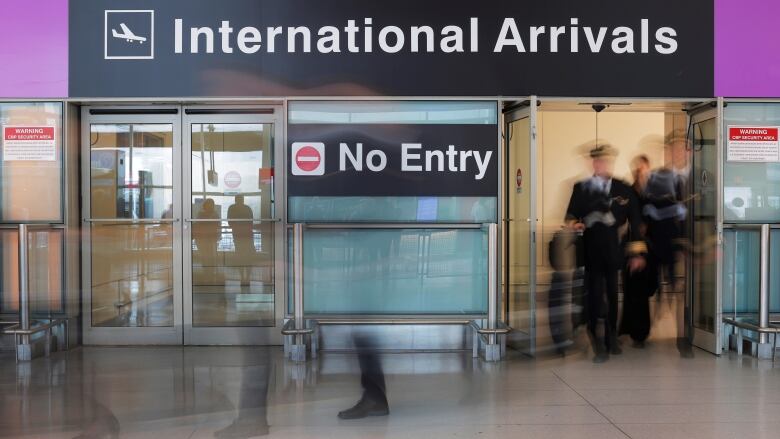Supreme Court OKs enforcement of Trump's travel ban, with some exceptions
Refugees barred entry, but travellers with resettlement plans or U.S. connections allowed

The U.S. Supreme Court is granting the Trump administration's request to more strictly enforce its ban on refugees, at least until a federal appeals court weighs in.
- U.S. Supreme Court allows partial travel ban to take effect pending appeals in October
- Travel ban ruling in U.S. court opens path for more refugees, but appeal awaits
But the justices are leaving in place a lower court order that makes it easier for travellers from six mostly Muslim countries to enter the U.S.
The administration had appealed last week's ruling by U.S. District Judge Derrick Watson that required the government to allow in refugees formally working with a resettlement agency in the United States. Watson also vastly expanded the family relations that refugees and visitors can use to get into the country.

The high court on Wednesday blocked Watson's order as it applies to refugees, but not the expanded list of relatives. The justices said the federal appeals court in San Francisco should now consider the appeal. It's not clear how quickly that will happen.
In the meantime, though, up to 24,000 refugees who already have been assigned to a charity or religious organization in the U.S. will not be able to use that connection to get into the country.
3 justices back travel ban
The Supreme Court also denied the administration's request to clarify its ruling last month that allowed the administration to partially reinstate a 90-day ban on visitors from Iran, Libya, Somalia, Sudan, Syria and Yemen, and a 120-day ban on refugees from anywhere in the world.
The court's ruling exempted a large swath of refugees and travellers with a "bona fide relationship" with a person or an entity in the U.S. The justices did not define those relationships but said they could include a close relative, a job offer or admission to a college or university.

Watson's order added grandparents, grandchildren, brothers-in-law, sisters-in-law, aunts, uncles, nieces, nephews and cousins to a list that already included a parent, spouse, fiance, son, daughter, son-in-law, daughter-in-law or sibling already in the U.S. The expanded list of relatives remains in effect.
Justices Samuel Alito, Neil Gorsuch and Clarence Thomas would have blocked Watson's order in its entirety. Those same three justices said last month they would have allowed the Trump travel ban to take full effect.












_(720p).jpg)


 OFFICIAL HD MUSIC VIDEO.jpg)
.jpg)



























































































